- Quick Look at the 2020 Volkswagen Atlas Cross Sport | MotorTrend - March 13, 2024
- BMW Design – 2009 BMW Z4 – 2009 Detroit Auto Show - March 11, 2024
- Top 10 Car Features Women Love - October 7, 2023
Ford’s had enough of adventure-seeking families in the market for a crossover SUV heading to Jeep and Subaru showrooms.
At least, that’s the impression the 2022 Ford Explorer Timberline gives. With more ground clearance, a smattering of off-road-oriented hardware, an upgraded suspension, and all-terrain tires, Ford’s created the most off-road capable Explorer yet. But while it should be enough to sway some from a Subaru Outback, it falls short of stealing Jeep’s lunch.
Capability on a diet
Like the Subaru Outback, the Explorer Timberline goes light on the off-road capability compared to the Jeep Grand Cherokee. Let’s just call it Capability Light, the 95-calorie capability.
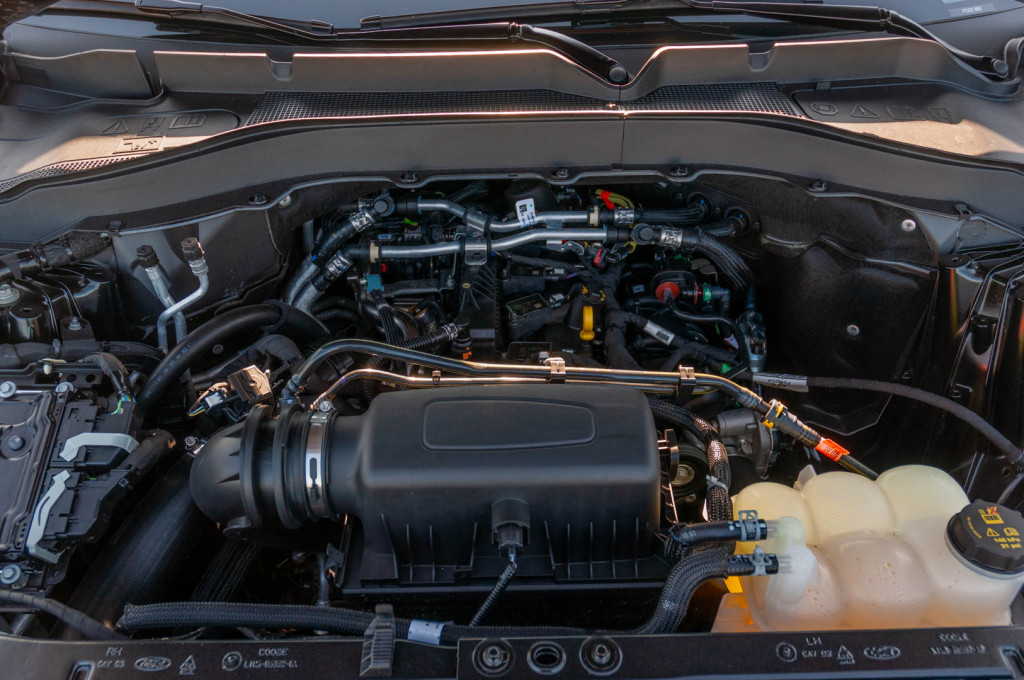
2022 Ford Explorer Timberline
Every Explorer Timberline has a 2.3-liter turbo-4 rated at 300 hp and 310 lb-ft of torque under its hood mated to a 10-speed automatic transmission. While that’s more power than any Subaru Outback and it’s adequate in the Explorer, the 4xe plug-in hybrid powertrain in the Grand Cherokee Trailhawk will leave this Ford in the dust.
In day-to-day driving the Explorer’s turbo-4 is the definition of fine, but it starts to run out of steam in highway passing maneuvers. I don’t question the Timberline’s maximum tow rating of 5,300 pounds, but I do suspect it will struggle to tow confidently at highway speeds. That’s a test for another time. Senior Editor Robert Duffer also noted lumpy first-to-second and second-to-third gear shifts, though I didn’t have the same experience.
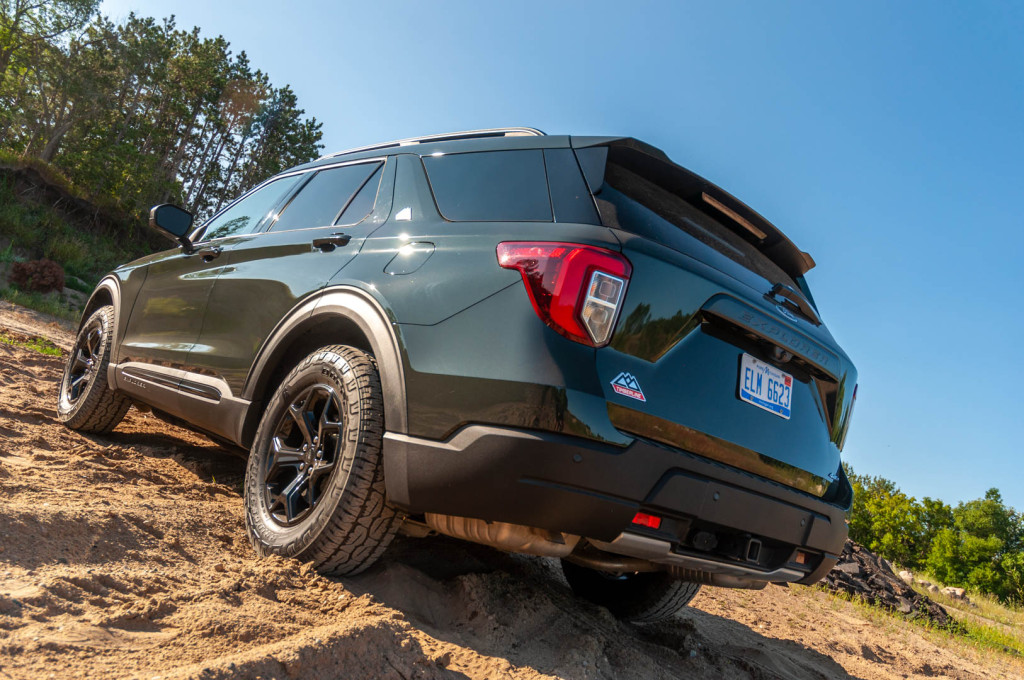
2022 Ford Explorer Timberline
Where the Timberline takes a right turn down a gravel road from other Explorers is its suspension and running bits. Ford swapped in a set of heavy-duty shocks (which were yanked from the Explorer Police Interceptor’s parts bin), upgraded the stabilizer bars, and installed off-road springs with more rebound up front to reduce jarring off-road movements. Company engineers also went with taller 265/65R18 Bridgestone Dueler All-Terrain tires, and added skid plates below the engine, transmission, and rear-end. They also recalibrated the steering to mesh with the suspension changes.
The result is the best-riding Explorer money can buy. On broken Midwest pavement the Timberline soaks up road imperfections and keeps them in the background. Body motions are well controlled, and with a slightly wider track than the Grand Cherokee Trailhawk, the Timberline feels a bit more stable going down the highway.
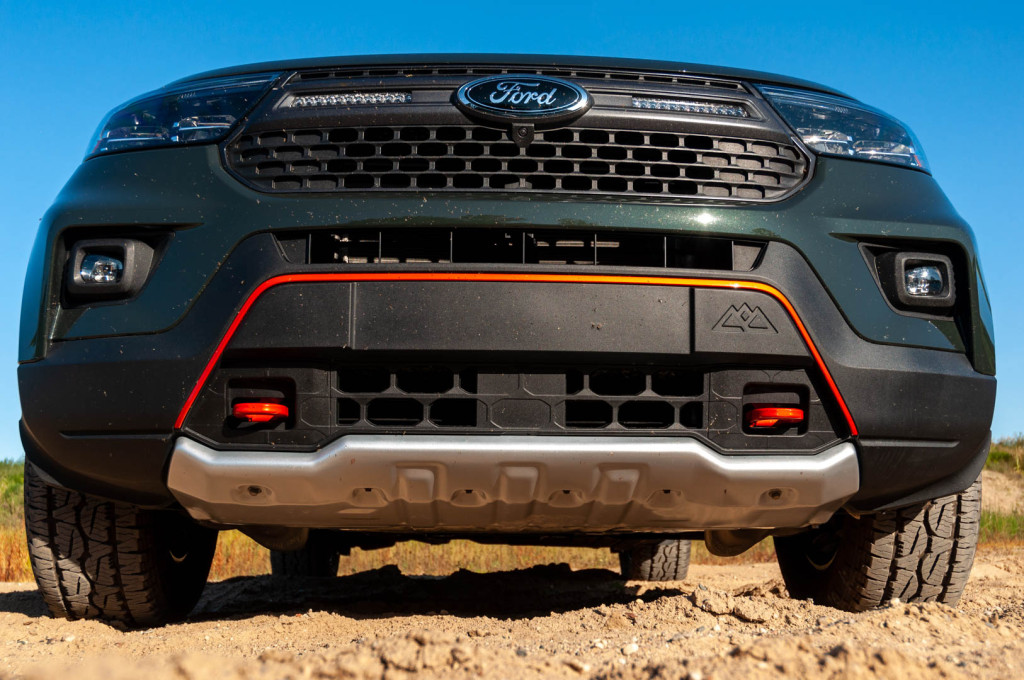
2022 Ford Explorer Timberline
The approach angle improves over the standard Explorer from 20.1 to 23.5 degrees, while departure angle rises from 22.0 to 23.7 degrees. But with 8.7 inches of ground clearance (up 0.8 inch over a standard Explorer), the Timberline comes up short, literally, next to the Subaru Outback Wilderness with its 9.6 inches of ground clearance. And the Grand Cherokee Trailhawk will go much deeper into the wilderness with its disconnecting front sway bar and 10.9 inches of ground clearance when raised up on its air suspension. The Jeep also has a 2-speed transfer case to let the SUV crawl over rocks and through streams. The Explorer? It’s living a lie with a 4WD badge slapped on its tailgate despite the fact it lacks a 2-speed transfer case with low-range gearing for low-speed torque and control in the toughest off-road situations. It goes about its business with an all-wheel drive system that sends power to the wheels with traction. The Ford’s best feature is its Torsen limited-slip rear differential to help keep wheel spin in check during slippery situations.
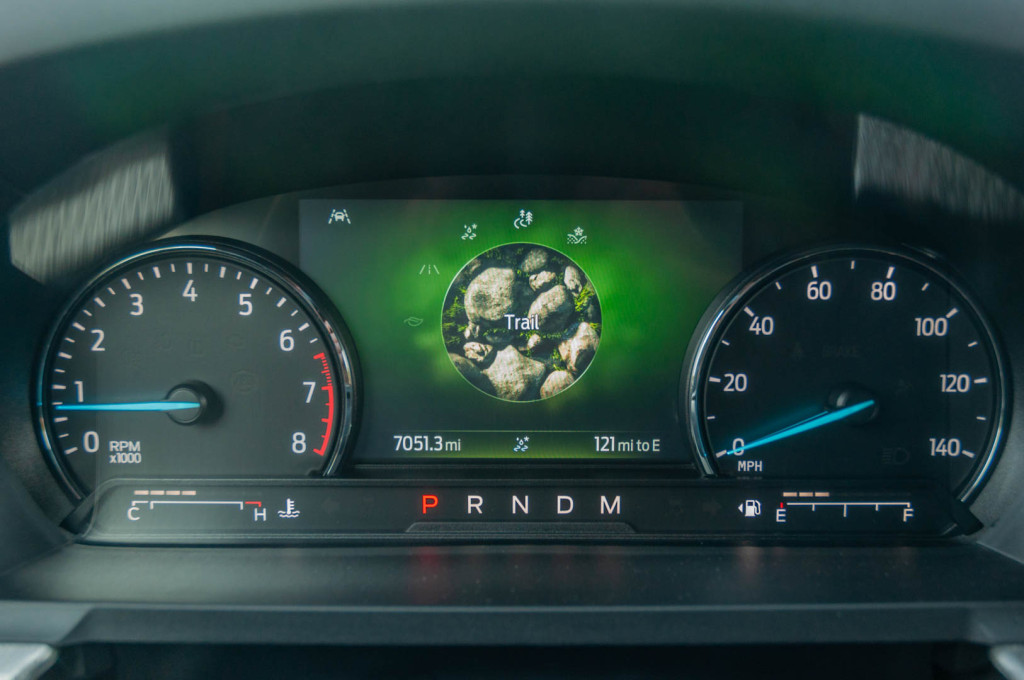
2022 Ford Explorer Timberline
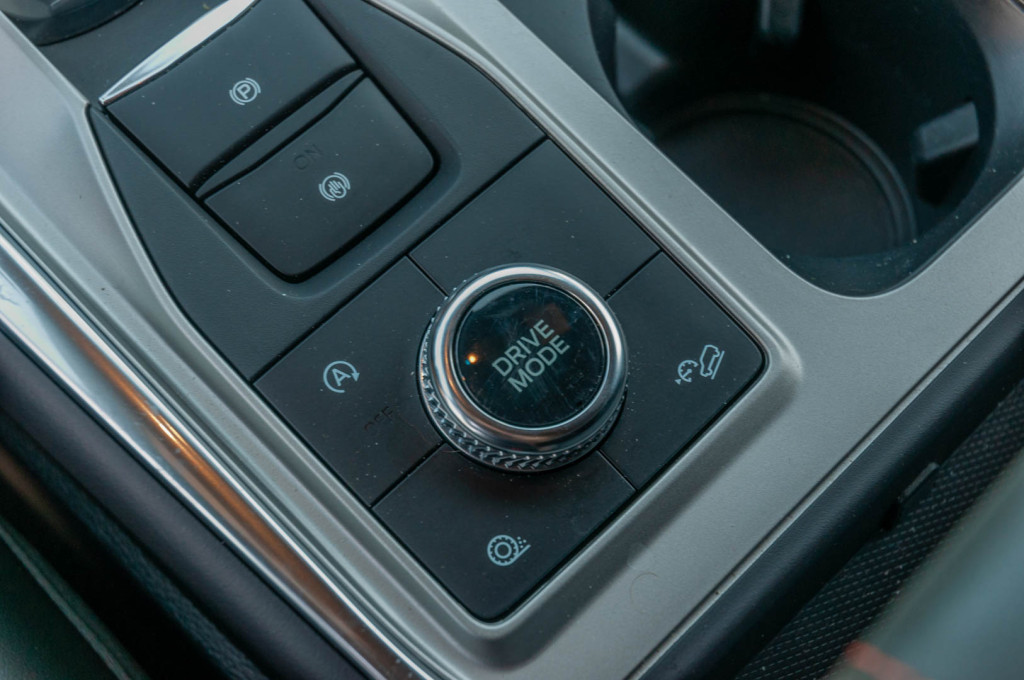
2022 Ford Explorer Timberline
But, like the Jeep, the Explorer’s ace in the hole, which the Outback lacks, is a terrain management system. The system has Normal, Trail, Deep Snow/Sand, Slippery, Sport, Tow/Haul, and Eco driving modes. While my off-roading excursion in the Explorer Timberline consisted only of a gravel farm road, I’ve had extensive experience with Ford’s Terrain Management System as it’s featured in everything from Raptors and Broncos to the Expedition. It’s one of the best systems in the business and truly tailors the powertrain and traction/stability control for the conditions at hand, though it’s telling that it lacks Rock Crawl and Mud/Ruts modes on the Explorer Timberline.
The bottom line is the Explorer Timberline will provide the off-roading capability most buyers need better than other versions of Ford’s mid-size three-row SUV. However, it will hit the end of the trail when confronted by the technical, low-speed stuff that the Jeep Grand Cherokee Trailhawk can handle.
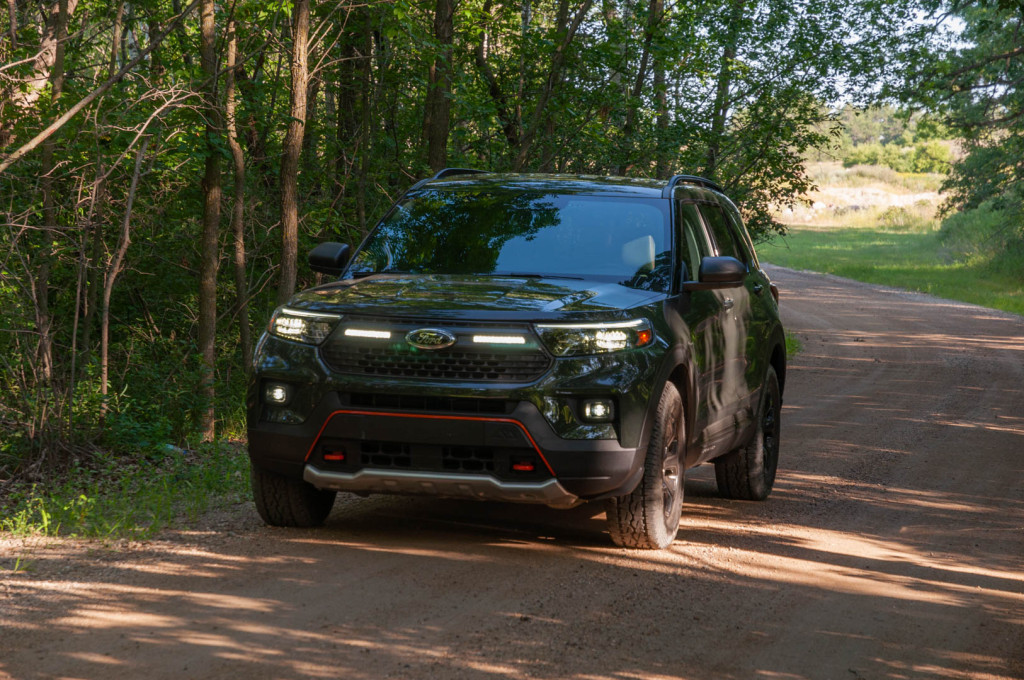
2022 Ford Explorer Timberline
Playing undercover undercover cop
With blacked out headlights and taillights, chunky all-terrain tires, 18-inch black-painted aluminum wheels, and grille-mounted LED fog lights, the Explorer Timberline looks like an undercover cop car. The orange Timberline badges and tow hooks reveal it’s a Timberline, but they take more than a quick glance to spot.

2022 Ford Explorer Timberline
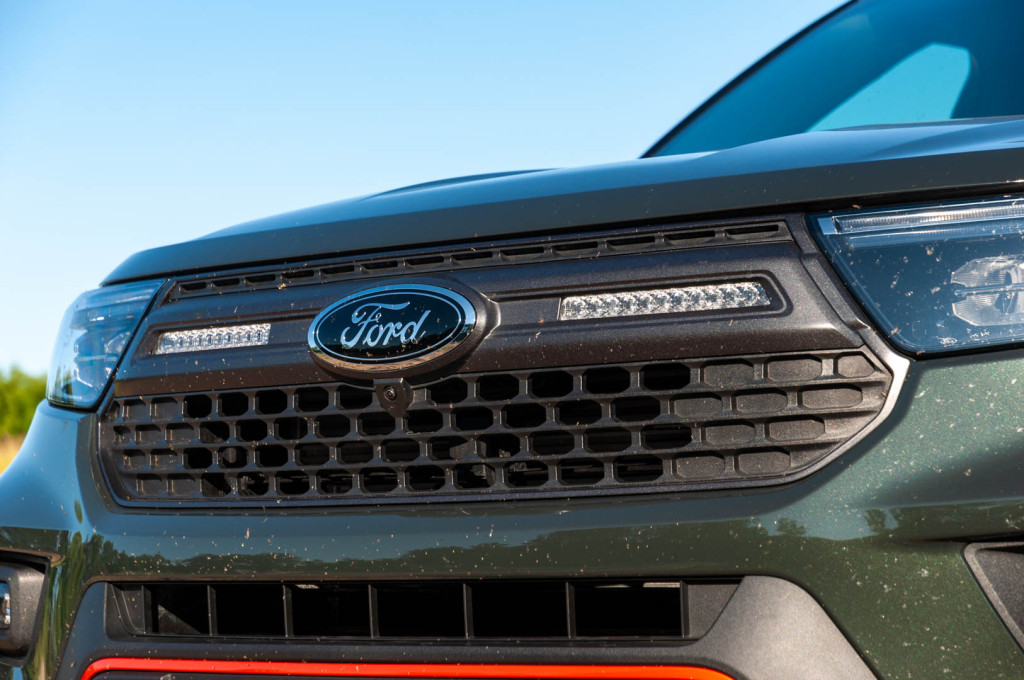
2022 Ford Explorer Timberline
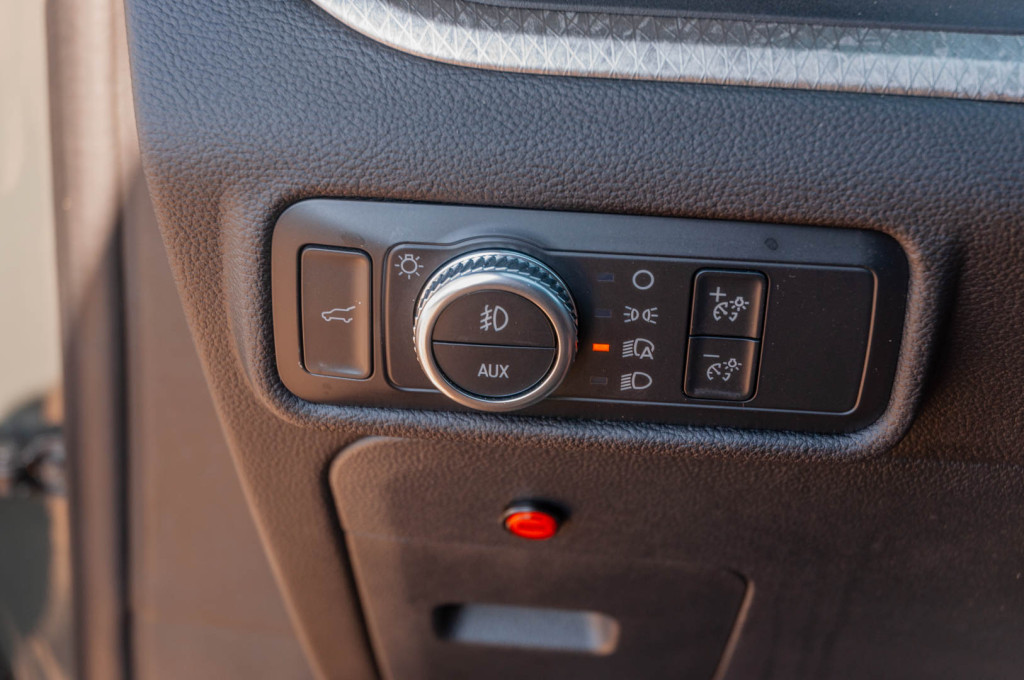
2022 Ford Explorer Timberline
The grille-mounted LED fog lights strips on either side of the Ford badge actually perform more like driving lights. They do a terrific job of lighting up the road, but the beams are focused down the center of the road in between the headlights rather than spreading to the sides of the road. They also can’t be used with the high beams, though they can be used in conjunction with the round factory fog lights mounted lower in the bumper, which is an odd choice. The top-mounted fog lights are engaged by an AUX button on the headlight control dial. An orange light indicates they are active and has an aftermarket look.
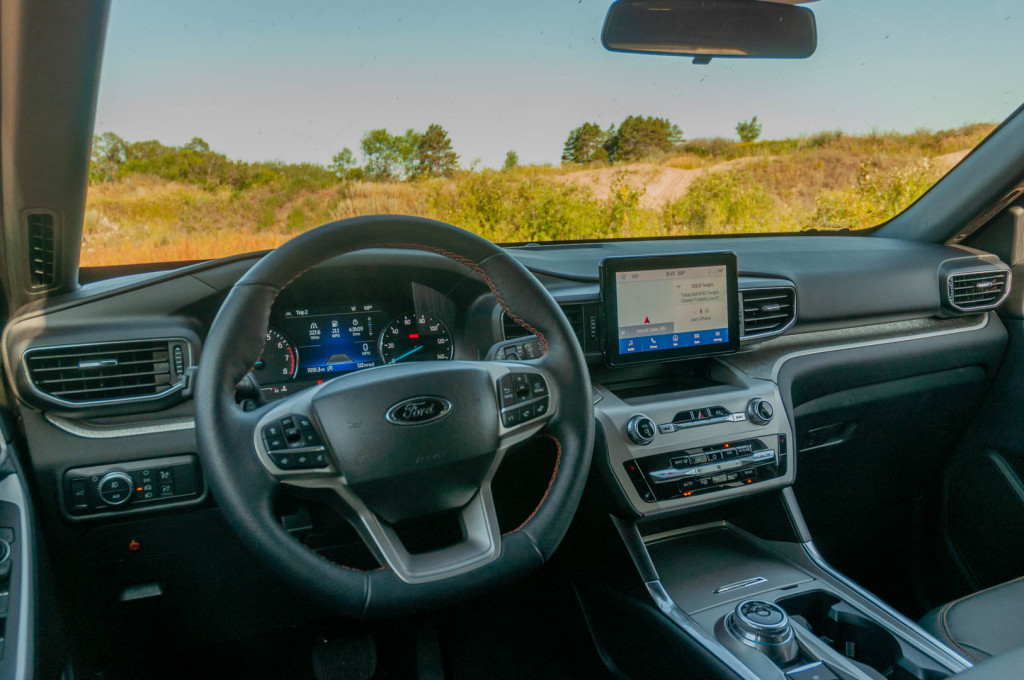
2022 Ford Explorer Timberline
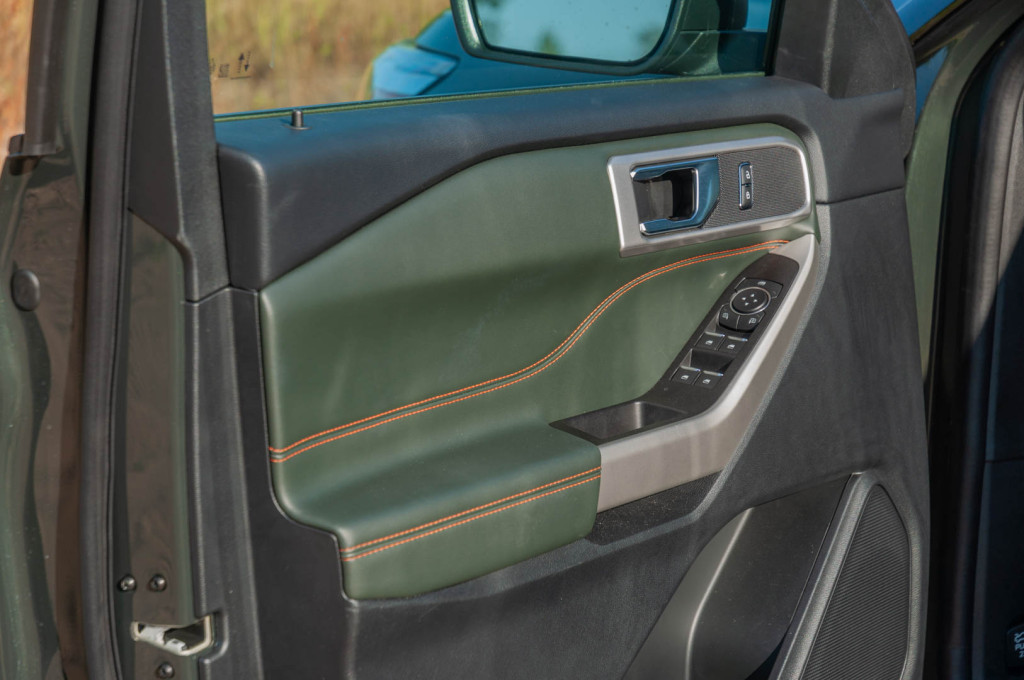
2022 Ford Explorer Timberline
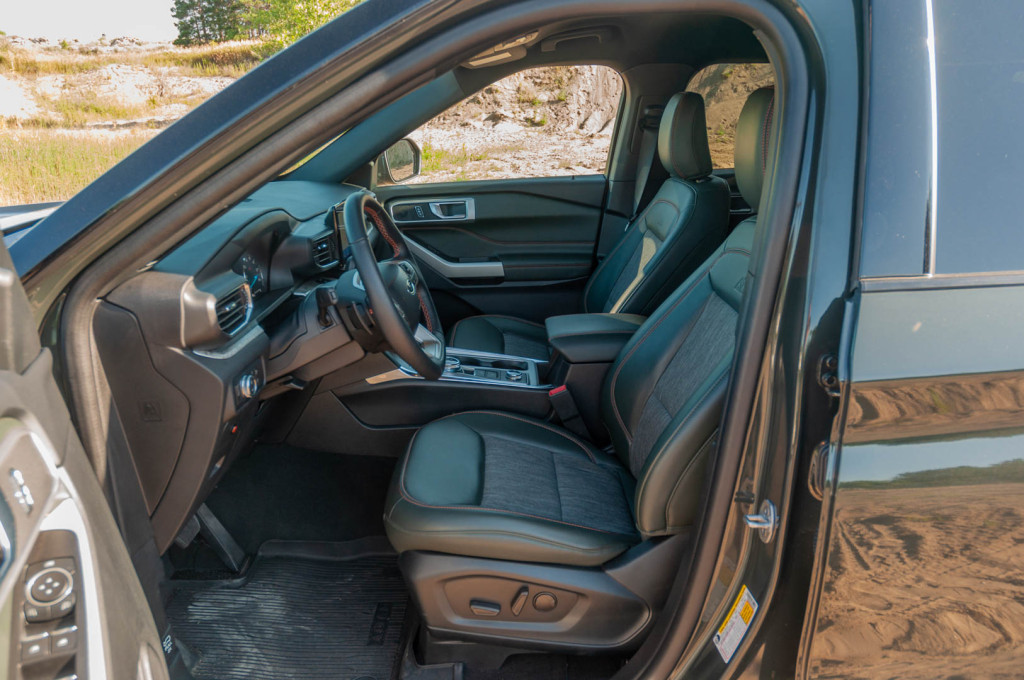
2022 Ford Explorer Timberline
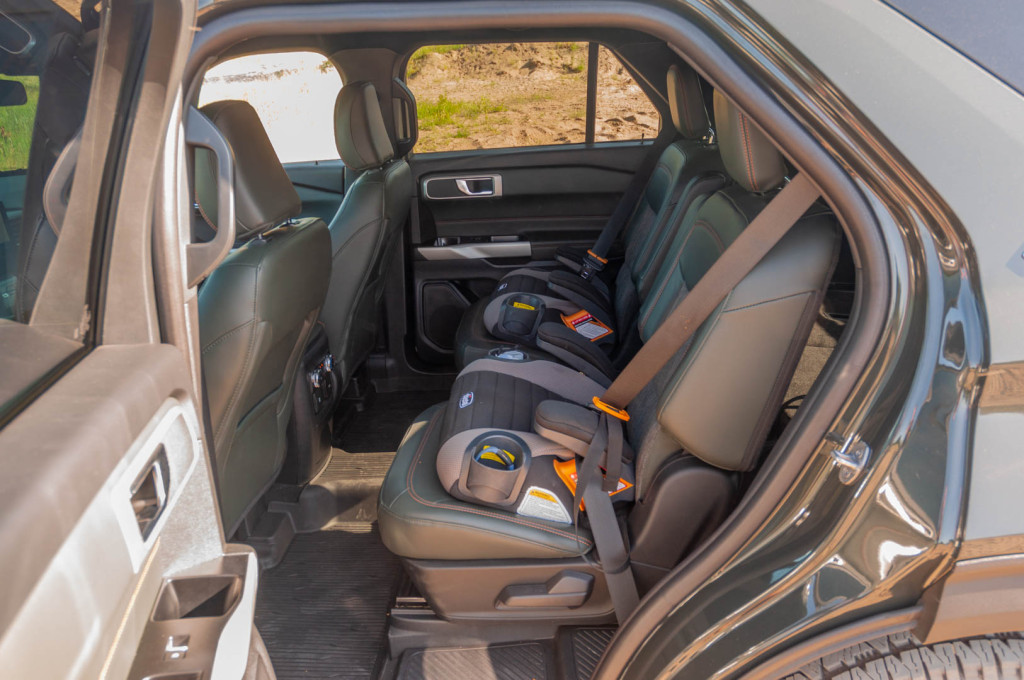
2022 Ford Explorer Timberline
Inside, the Timberline is standard Explorer fare, including the analog gauge cluster with a 6.5-inch information display and 8.0-inch touchscreen infotainment system. The standard satin silver colored trim with Timberline-specific graining Ford called Stone Mesh is nice to look at and touch, but it’s the green interior with orange stitching that is so hot with ’90s vibes that tugs at my childhood heart strings. While the green interior looked fantastic with my tester’s Forged Green paint, it’s unclear how it would look with one of the other available colors.
Those green seats are soft, supportive, and road-trip worthy. The first two rows are extremely comfortable, and the seats are wider than those found in the Grand Cherokee. But the third row is a bit small for adults. It’s acceptable for quick trips around town, but no one past grade-school age will want to spend real time back there. The Outback has no third row and neither does the Grand Cherokee Trailhawk.
At $47,450 as tested (though the base price has since been raised to $51,475), the Timberline falls in the middle of the Explorer lineup between the Limited and the sportier, more powerful ST. It’s also about $11,000 more than a Subaru Outback Wilderness and $14,000 less than a Grand Cherokee Trailhawk.
The Explorer Timberline sits between the Jeep and Subaru in price. It can’t match the Jeep’s off-road capability, but is roughly equivalent to the Subaru as long as 8.7 inches of ground clearance meets your needs. Depending on the off-road adventure capability you desire, the Explorer Timberline might pencil out to be the right fit. You certainly can’t get a green interior in a Subaru or Jeep, and neither of those have three-rows of seats. So, how far do you really need to go off-road and with how many people?
Ford provided a green-on-green Explorer Timberline for this review, but your author supplied the Minnesota backdrop
